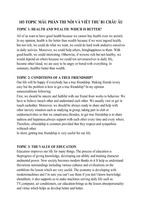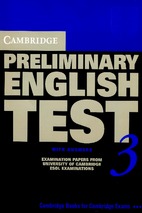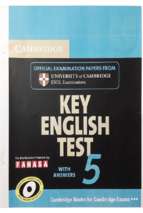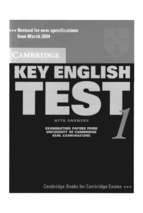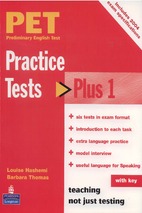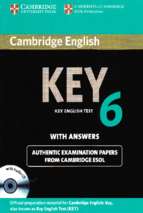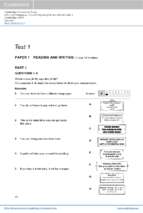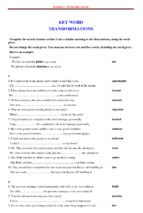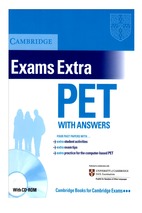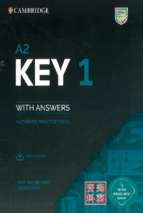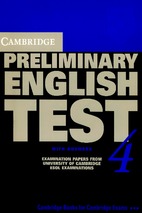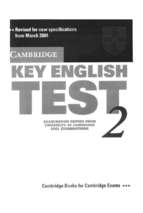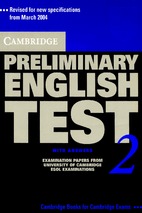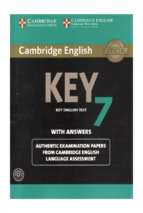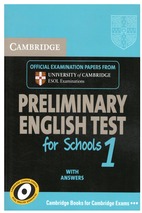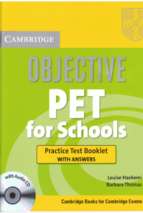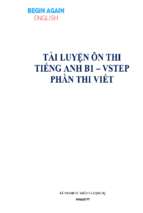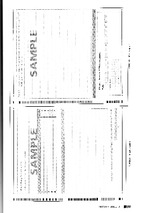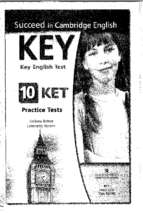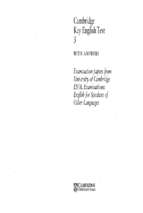1HELLO!
A
B
A
B
Hello. My name's Jenny. What's your name?
Anna.
Where are you from, Anna?
I'm from New York.
A
B
A
B
A
Hello. My name's Thomas. What's your name?
Johann.
Where are you from, Johann?
I'm from Berlin. Where are you from?
I'm from Oxford.
My name's Mayumi Kimura, and I'm a student. I'm 19 years old. I'm not married. I have
two brothers and a sister. I live in a flat in Osaka, Japan. I want to learn English because
it's an international language.
France
England
Brazil
Mexico
1
2
3
4
5
6
Spain
Greece
Egypt
Russia
Japan
Germany
Hungary
Italy
He's from Spain.
I'm sixteen.
Her name's Pat.
They're from Britain
Where's she from?
He�s a teacher in France.
a
A
B
A
Hello, Mary. How are you?
Fine, thank you. And you?
I'm OK, thanks.
b
A
B
A
B
Hi, Dave. How are you?
Not bad, thanks. And you?
Very well. How are the children?
They're fine.
c
A
B
A
Goodbye, Chris.
Goodbye, Anne. Have a nice evening.
Thanks, Chris. See you tomorow.
a stamp
an apple
an orange
a dictionary
a bag
a postcard
a letter
an envelope
a map
a key
a ticketa notebook
a suitcase
a camera
a newspaper a magazine
The letters of the alphabet
/ei/
ahjk
/i:/
bcdegptv
/e/
flmnsxz
/ai/
iy
/OU/ o
/u:/
quw
/�:/ r
The alphabet song
abcdefghijklmnoplmnopqrstlmnopqrstuvwxyz
That is the English alphabet.
Spelling
name N-A-M-E
sister S-I-S-T-E-R
flat
F-L-A-T
student S-T-U-D-E-N-T
doctor D-O-C-T-O-R
house H-O-U-S-E
letter L-E-double T-E-R
married
M-A-double R-I-E-D
apple A-double P-L-E
job
J-O-B
The conversation
A
How do you spell your first name?
B
J-A-M-E-S.
A
How do you spell your surname?
B
H-A-double R-I-S-O-N.
A
James Harrison.
B
That's right.
2PEOPLE
Numbers
5
20
16
32
50
12
Phone numbers
791463
8596double2
503971
010 double 3 1 46589394
A
B
A
B
A
B
A
B
A
B
A
B
A
B
A
B
What's her surname?
Hopkins.
What's her first name?
Mary.
Where's she from?
England.
What's her job?
She's a journalist.
What's her address?
35, North Street, Bristol.
What's her phone number?
0272 478 2209.
How old is she?
Twenty-three.
Is she married?
No, she isn't.
This is a photo of Martin, his wife, and his children. His wife's name is Jennifer. She's a
dentist. His daughter's name is Alison. She's twenty-three and she's a hairdresser. His
son's name is Andy. He's nineteen and he's a student. Alison's boyfriend is a travel agent.
His name is Joe.
a
b
c
d
It's big.
It's small.
She's old.
She's young.
e
f
g
h
i
j
k
l
m
n
o
p
They're expensive.
They're cheap.
It's horrible.
It's lovely.
It's easy.
It's difficult.
They're old.
They're new.
They're hot.
They're cold.
It's right.
lt's wrong.
72 Newton Drive
London Sw 6
3ed October
Dear David,
How are you? I'm fine. I'm in London, at the International School of English. I'm in class
3 with eight other students. They're all from different countries Spain, France, Japan,
Argentina, Switzerland and Thailand. Our teacher's name is Peter Briscall. He's very nice.
He's funny and he's a very good teacher.
My new address is at the top of the letter. I'm with an English family, the Browns. Mr and
Mrs Brown have three children. Thomas is fourteen, Catherine is twelve, and Andrew is
seven. They are all very friendly, but it isn't easy to understand them!
London is very big and very interesting. The weather is good cold but sunny and the
parks are beautiful! Hyde Park, Green Park, and St James' Park are all in the centre. It
isn't easy to use the Underground, but I understand it now. It's very expensive!
English food is OK, but the coffee is horrible!
Write to me soon.
Love, Paola.
P.S. Is my English OK?
1.
Paola Hello. My name's Paola.
Kurt Hello, Paola. I'm Kurt.
Paola Where are you from?
Kurt
Paola
Kurt
Paola
Kurt
I'm from Switzerland. And you? Where are you from?
I'm from Rome.
Ah! I'm from Zurich.
Zurich is very beautiful.
Yes, it is.
2.
T = ticket seller
P
A ticket to Green Park, please.
T
Two pounds fifty.
P
One... two... and fifty p.
T
Thank you. Here's your ticket.
P
Thanks.
3.
B = Peter Briscall
C = class
B
Good morning!
C
Good morning!
Good morning, Peter!
Hello!
B
How are you today?
C
Fine. OK
B
How are you, Paola?
P
I'm fine thank you, Peter. And you?
B
Very well! Now, the lesson today is going to be about...
4.
C = assistant in caf
C
P
C
P
C
P
C
P
P
K
K = Kurt
Yes?
A coffee, please.
Black or white?
Sorry?
Black or white? Milk?
Ah! Black, please. No milk.
Sixty p, please.
Thanks.
Urgh! It's horrible!
English coffee is very bad!
5.
C = Catherine T = Thomas
C
P
C
P
C
P
T
P
T
P
C
T
P
T
Is your teacher good, Paola?
Pardon?
Your teacher. At the school of English.
Ah! Yes! Peter.
Is he OK?
Yes. He's very nice. He's funny.
What's your dad's job, Paola?
Pardon? I...
Your dad. What's his job?
My dad ...?
Say father, Thomas, not dad.
Ah, OK. What's your father's job, Paola?
Now I understand. My father's job, yes.
Um... He's a doctor, yes.
Ah, right!
a
sandwiches
a ham sandwich
a cheese sandwich
a tuna sandwich
a chicken sandwich
a piece of pizza
a hamburger 2.50
an ice-cream 80p
a cup of tea
a cup of coffe
a Coke
an orange juice
a mineral water
1.50
1.30
1.70
2.00
90p
A
B
A
B
A
B
A
B
A
B
How much is a cup of tea?
50p
How much is a cup of coffee?
70p
How much is a Coke?
60p
How much is an orange juice?
60p
How much is a mineral water?
80p
A
B
Hello.
Hello. Can I have a ham sandwich, please?
A
B
A
B
A
Here you are. Anything else?
No, thanks.
One pound fifty, please.
Thanks.
Thank you.
A
B
A
B
A
B
A
B
Hi.
Hello. Can I have a cheese sandwich, please?
Anything to drink?
Yes. A cup of tea, please.
OK. Here you are.
How much is that?
One pound eighty, please.
Thanks.
A
Good morning.
B
Morning.
A
Can I have a hamburger and a cup of coffee, please?
B
OK. Here you are.
A
Thanks. How much is that?
B
Three pounds twenty.
A
One, two, three pounds ... twenty p.
B
Thanks.
A
Thank you.
WORK
Sister Mary comes from Ireland. She is a nun and she lives and works in a girls' school in
Cork. She teaches French and Spanish. She likes her job and she loves the green
countryside of Ireland. She goes walking in her free time.
Hans Huser is a ski-instructor. He is Swiss and lives in Villars, a village in the mountains.
In summer he works in a sports shop and in winter he teaches skiing. He speaks four
languages, French, German, Italian, and English. He is married and has two sons. He
plays football with them in his free time.
Sister Mary
A
Where does Sister Mary come from?
B
Ireland.
A
What does she do?
B
She's a teacher.
A
Does she speak French?
B
Yes, she does.
A
Does she speak German?
B
No, she doesn't.
Hans Huser
A
B
A
B
A
B
A
B
Where does Hans come from?
Switzerland.
What does he do?
He's a ski-instructor.
Does he speak French and German?
Yes, he does.
Does he speak Spanish?
No, he doesn't.
Georges, Keiko and Mark
1
Georges comes from Paris.
2
Georges lives in London.
3
He works in the centre of Paris.
4
In his free time he plays tennis.
5
Keiko comes from China.
6
She lives in Washington.
7
She speaks French and German.
8
She's married to an American.
9
Mark comes from England.
10
He works in Liverpool.
11
He speaks Italian.
12
In his free time he goes walking.
Hear the sentences
1
She likes her job.
2
She loves walking.
3
She's married.
4
Does he have three children?
5
Where does he go?
6
She watches the television.
Frank Garret's day
a
A
Good morning, sir. Can I see your ticket?
B
Yes, of course. Here you are.
A
Thank you. Maidstone next stop.
B
Thank you.
b
A
B
A
B
A
c
Good morning, boys and girls.
Good morning, Mr Garret.
Can I have your homework, please?
It's on your desk, Mr Garret.
Thank you.
A
B
A
B
Goodbye, Frank. Have a good journey!
Thank you very much.
See you next Monday.
Yes, of course. Goodbye!
d
A
B
A
B
Excuse me. Is this seat free?
Yes, it is.
Thank you. It's cold this evening.
It certainly is. And the sea's very black!
e
A
B
A
B
Hello darling! Are you tired?
Yes, I am. And cold.
Sit down and have a glass of wine.
Mmmm! Thank you. I'm hungry, too.
Listen to the time
It's five o'clock.
It's eight o'clock.
It's half past five.
It's half past eleven.
It's quarter past five.
It's quarter past two.
It's quarter to six.
It's quarter to nine.
It's five past five.
It's ten past five.
It's twenty past five.
It's twenty-five past five.
It's twenty-five to six.
It's twenty to six.
It's ten to six.
It's five to six.
Conversation about the time
A
Excuse me. Can you tell me the time, please?
B
Yes, of course. It's six o'clock.
A
Thanks.
A
Excuse me. Can you tell me the time, please?
B
I'm sorry. I don't know. I don't have a watch.
FREE TIME
Ann McGregor
On Fridays I come home from the BBC at about 2.00 in the afternoon and I just relax. On
Friday evenings I don't go out, but sometimes a friend comes for dinner. He or she brings
the wine and I cook the meal. I love cooking! We listen to music or we just chat.
On Saturday mornings I get up at 9.00 and I go shopping. Then in the evenings I
sometimes go to the theatre or the opera with a friend I love opera! Then we eat in my
favourite Chinese restaurant.
On Sunday... Oh, on Sunday mornings I stay in bed late, I don't get up until 11.00!
Sometimes in the afternoon I visit my sister. She lives in the country and has two
children. I like playing with my niece and nephew, but I leave early because I go to bed at
8.00 on Sunday evenings!
A
A
Do you go out on Friday afternoons?
B
No, I don't.
A
What do you do?
B
I just relax.
A
Do you stay at home on Friday evenings?
B
Yes, I do.
A
What do you do?
B
I cook dinner for friends.
B
1
2
3
4
5
6
What does he do on Sundays?
I stay at home on Thursday evenings.
He lives here.
I eat a lot.
Where do you go on Saturday evenings?
She likes cars.
Mr Forrester
Mr and Mrs Forrester have a son and a daughter. The son lives at home, and the daughter
is a student at university. Mr Forrester is a journalist. He works for The Times. He writes
articles about restaurants. I love food! he says.
Mr Forrester's holidays
Every spring the children go skiing, so my wife and I go to Paris on holiday. We stay in a
hotel near the River Seine. We have breakfast in the hotel, but we have lunch in a
restaurant. French food is delicious! We walk a lot, but sometimes we go by taxi. After
four days we don't want to go home and go back to work.
The Seasons
AL WHEELER FROM CANADA
We have long, cold winters and short, hot summers. In summer I go sailing and I play
baseball, but in winter I play ice hockey and go ice-skating. We have a holihay home near
a lake, so I go fishing a lot, too. My favourite season is autumn, or fall, as we say in
North America. I love the colours of the trees-red, gold, orange, yellow, and brown.
MANUELA DA SILVA FROM PORTUGAL
People think it's always warm and sunny in Portugal, but January and February are often
cold, wet, and grey. I don't like winter. I meet friends in restaurants and bars and we chat.
Sometimes we go to a Brazilian bar. I love Brazilian music. But then suddenly it's
summer and at weekends we drive to the beach, sunbathe, and go windsurfing. I love
summer.
TOSHI SUZUKI FROM JAPAN
I work for Pentax cameras, in the export department. I don't have a lot of free time, but I
have once special hobby taking photographs, of course! I like taking photographs of
flowers, especially in spring. Sometimes, after work, I relax in a bar near my office with
friends. My friend, Shigeru, likes singing pop songs in the bar. This has a special name,
Karaoke. I don't sing I'm too shy! I just watch him.
Conversations
1
M = Manuela
J = Jane
F = Manuela's friends P = Portuguese man
M
F
J
M
J
P
J
P
M
Hello, everybody! This is my friend Jane, from England.
Hi!
Hello, Jane!
Hello!
Hello. Pleased to meet you.
Sit down here, Jane.
Thanks.
Do you like this music, Jane?
Mm. Is it American?
No, it's Brazilian jazz!
Come and have a drink, Jane...
2
T = Toshi
T
J
T
J
T
J = Jones
Mrs Jones! How do you do?
How do you do?
Please, come in. You're from our office in London, aren't you?
Yes, that's right.
Welcome to Tokyo! Do you like our headquarters here?
J
T
Yes. It's very big. How many people work here?
About six thousand people. Do you want to see our offices?...
3
A = Al M = Mick
A
What do you want to do today, Mick?
M
Ooh, I don't know. What do you ...
A
Well, do you like fishing?
M
Yes. I sometimes go fishing in a river near my house in Scotland.
A
Well, here it's different. This is a very big country. I go fishing on a lake. It's
hundred kilometres long!
M
A hundred kilometres!
A
Yeah! There are fish this big! Are you interested? Do you want to go?
M
OK!
A
Right. You want a fishing line ...
Social English
a
A
B
A
B
A
Excuse me!
Yes?
Do you have a light?
I'm sorry. I don't smoke.
That's OK.
b
A
B
I'm sorry I'm late. The traffic is bad today.
Don't worry. Come and sit down. We're on page 25.
c
A
B
A
d
Can I open the window? It's very hot in here.
Really? I'm quite cold.
OK. It doesn't matter.
A
B
A
B
A
B
A
B
Excuse me!
Can I help you?
Can I have a film for my camera?
How many exposures?
Pardon?
How many exposures?
What does exposures mean?
How many pictures? 24? 36?
A
Ah! Now I understand! 36, please.
PLACES
A
B
A
B
A
B
A
B
Is there a stereo?
Yes, there is.
Is there a clock?
No, there isn't.
Are there any book?
Yes, there are.
Are there any magazines?
No, there aren't.
Picture A
There are four pictures on the walls and a mirror. There are three people in the room, a
man, a woman, and a girl. There's a lovely fire and the cat is in front of the fire, sleeping.
There's a lamp near the window, and a clock on the wall near the mirror. There's a photo
on the television and there are some newspapers on the floor near the television. There's a
glass of beer on the table in front of the man. The television isn't on.
Picture B
There are two people in the room. There's a man on the sofa and a woman next to him.
The cat's in front of the fire. There are four pictures on the walls. There are two plants,
one on the left of the fire and one on the right. On the table in front of the man there are
some cups and some books and on the table next to the sofa there is a telephone.
It's a modern kitchen, nice and clean with a lot of cupboards. There's a washing machine,
a fridge and a cooker, but there isn't a diswasher. There are some lovely pictures on the
walls, but there aren't any photographs. There's a radio near the cooker. There are some
flowers, but there aren't any plants. On the table there are some apples and oranges. Ah!
And there are some cups and plates next to the sink.
What's in my bag? Well, there's a newspaper a French newspaper and there's my
dictionary. I have some pens, three, I think. There's a photo of my wife and a photo of my
children. I have my notebook for vocabulary, of course. I write words in that everyday. I
have some keys, and that's all! I don't have any stamps and I don't have a bus ticket. Oh,
and I have a letter, from my bank manager. He wants my money!
Where they live...
Anne-Marie
I live in a house in the country in Provence in the south of France. It's an old farmhouse,
about five hundred years old, with very thick walls, so it's warm in winter and cool in
summer, but it's difficult to look after because it's so old. There are three bedrooms, two
quite big and one small, and they have wonderful views over the countryside. I have a
garden where I grow flowers and vegetables. I live with my animals! I have two dogs and
eight cats.
Harry
Where I live things are big. I live in Texas that's the second biggest state in the USA
and I live with my wife and our four children. We have ten cars because we all like
driving. Sometimes we drive 150 kilometres to go to a restaurant! Our house is three
years old, and it's kind of big. There are fourteen or fifteen bedrooms, I don't know
exactly, and outside there are two swimming pools and... a golf course ... and some grass
for my plane to land on.
Dave and Maggie
Maggie
We have a small house in an area of Dublin called Donnybrook. It's quite a
small house. There's a living room and a kitchen downstairs, and then two small
bedrooms upstairs, but it's big enough for us. There's my husband and me, and our son,
Thomas.
Dave The houses around here are about a hundred years old and people are very
friendly. People don't want to move away, they want to live near their family, so my
parents are very close...
Maggie
...and my mother lives next door! We have a small garden where Thomas
plays, and I go out and have a chat with my mother!
Thanos
I live in a flat on the fourth floor. I live alone. There's a kitchen where I cook and eat, a
living room with a balcony, and two small bedrooms. I live in Athina you say Athens in
English but not in the centre of town because there are too many cars. It's a nice area.
The shops aren't too far, and the flat is comfortable. It's about five years old, which I like.
I don't like old buildings.
Everyday English
a
A
Excuse me! Is there a chemist's near here?
B
Yes. It's over there.
A
Thanks.
b
A
B
A
Excuse me! Is there a sports club near here?
Yes. It's in Queen Street. Take the second street on the right.
Thanks.
c
A
Excuse me! Is there a newsagent's near here?
B
Yes. There's one in Church Street next to the bank and there's one in Park Lane
opposite the swimming pool.
A
B
Is that one far?
No. Just two minutes, that's all.
d
A
B
A
Is there a cinema near here?
Take the first left, and it's on the left, opposite the flower shop.
Thanks a lot. WHAT CAN YOU DO?
a
A
B
b
Can you speak Japanese?
No, I can't.
I can't hear you. The line's bad.
c
A
B
d
Can you use a word processor?
Yes, I can.
I can't spell your name.
e
Cats can see in the dark.
f
She can type fifty words a minute.
a
b
c
d
e
f
I can type, but I can't spell.
He can sing and he can dance.
A
Can you cook?
B
Yes, I can.
They can ski, but they can't swim.
We can read and we can write.
A
Can she drive?
B
No, she can't.
Sarah
Well, there are a lot of things I can't do! I can't draw and I can't drive a car, but I want to
have lessons. I can... I can type and I can use a word processor, because I have one at
work and I use it all the time. What about sports? Mm. Well, I certainly can't ski, but I'm
quite good at tennis, yes, I can play tennis. Well, I usually win when I play with my
friends. And I can swim, of course. And I can cook. I think I'm a very good, well, no, just
good... a good cook! Now, then ... languages. I can speak French and German, I don't
know any Italian at all, and I know about five words in Spanish adios, ma ana, paella
no, I can't speak Spanish! And I can't play any musical instruments, not the piano, the
guitar, or anything.
A
B
What day was it yesterday?
It was Thursday.
A
B
A
B
A
B
A
Where were you yesterday?
I was at school.
Were you at home yesterday?
Yes, I was.
The restaurant was cheap. But the food wasn't very good.
Could you play the piano when you were six?
No, I couldn't.
Sue
Bill
Sue
Bill
Sue
Bill
Sue
Bill
Sue
Were you at Eve's party last Saturday?
Yes, I was.
Was it good?
Well, it was OK.
Were there many people?
Yes, there were.
Was Tom there?
No, he wasn't. And where were you?
Oh... I couldn't go because I was at Adam's party! It was brilliant!
At the airport
This is flight information for today, 24 June. British Airways flight BA 516 to Geneva at
gate 14, last call. Flight BA 516 to Geneva, last call, gate 14. Scandinavian Airlines flight
SK 832 to Frankfurt at gate 7, last call. Flight SK 832 to Franfurt, last call, gate 7. Air
France flight AF 472 to Amsterdam is delayed thirty minutes. Flight AF 472 to
Amsterdam, delayed thirty minutes. Lufthansa flight LH 309 to Miami, now boarding at
gate 32. Flight LH 309 to Miami now boarding at gate 32. Virgin flight VS 876 to New
York, now boarding at gate 20. Flight VS 876, now boarding at gate 20. Passengers are
reminded to keep their luggage with them at all times. Thank you.
A
B
A
B
A
Ah!... BA 476 to Madrid. That's our flight.
Was it gate 4 or 14?
I couldn't hear. I think it was 4.
Ssssh! There it is again. It is gate 4.
OK. Come on!
A
B
A
Can I see your passport, please?
Yes, of course. Here you are.
Thank you very much. That's fine.
A
B
A
B
Can I have your ticket, please?
Yes, of course. Here you are.
Do you have just one suitcase?
Yes. This bag is hand luggage.
A
B
A
That's fine. Smoking or non-smoking?
Non-smoking, please. Oh... and can I have a seat next to the window?
Yes, that's OK. Here's your boarding pass. Have a nice flight!
A
B
A
B
Can I have your tray please, madam?
Yes. Here you are.
Thank you. And can you fasten your seat belt? We land in ten minutes.
Yes, of course.
A
B
A
B
Excuse me. I think that's my suitcase.
I'm sorry. My suitcase is red, too.
Is this yours?
Yes, it is. Thank you very much.
A
B
A
B
C
Hello. Are you Marie-Th r se Scherer from Switzerland?
Yes, I am. Are you Mr and Mrs Barnes?
Yes, we are. Welcome to England, Marie-Th r se. Was your flight good?
Yes, it was, but I don't like flying.
Never mind. You're here safely now. Come on, the car's outside.
a
Was it Gate 4 or 14?
b
Can I see your passport, please?
c
Smoking or non-smoking?
d
Can I have your tray please, madam?
e
Excuse me. I think that's my suitcase.
f
Welcome to England! Was your flight good?
THEN AND NOW
Ellen Peel
Ellen's father died in the war in 1915 and her mother died a year later. Ellen was twelve
years old. Immediately she started work as a housemaid with a rich family in London.
She worked from 5.30 in the morning until 9.00 at night. She cleaned all the rooms in the
house before breakfast. She earned 25 a year.
In 1921 she moved to another family. She liked her new job because she looked after the
children. There were five children, four sons and one daughter. She loved them,
especially the baby, Robert. She stayed with that family for twenty years. Ellen never
married. She just looked after other people's children until she retired when she was
seventy years old.
a
I was only twelve years old when my mother died and I started work.
b
c
d
e
f
g
I was always tired in my first job because I worked very long hours.
I started work at 5.30 in the morning and I finished at 9.00 in the evening.
Now I live in a village, but in 1920 I lived in London.
Now I look after my five cats. In the 1920s I look after five children.
I loved all the children, but I loved Robert especially.
Robert's over seventy now and I still see him. He visited me just last month.
Past Simple verbs
worked
lived
loved finished
cleaned
liked
died started
looked visited
stayed moved
Where was she born?
When did she die?
When did her father die?
When did she marry Prince Albert?
Where did they live?
How many children did they have?
Past Simple verbs
had
came worked
went
left
hated got
gave
become
wrote changed
lost
found bought sold
won
Kevin
What can I remember? Well, I left school in 1982. I was unemployed for two years, but
then I found a job in an office. I sold computer software to businesses.
Suddenly computers were everywhere! Banks, hotels, hospitals, schools, homes. My
Mum and Dad bought video recorder in 1985, and my little brother got a computer video
game for his birthday in 1986.
Near the end of the 1980s things got worse and in 1990 I lost my job.
Now, sport. Well, in 1980 the United States didn't go to the Olympics in Moscow, and in
1984 the USSR didn't go to the Olympics in Los Angeles, but they both went to Seoul in
1988.
Argentina won the World Cup in 1986, and Germany won it in 1990.
What about politics? Well, Mrs Thatcher was our Prime Minister for the whole of the
1980s. Reagan became the US president in 1981, Gorbachev gave the world glasnost and
perestroika, and the Berlin Wall came down in 1989. Then all sorts of things changed.
Silent leters
a walk d writer
g work
j half
b listen
e autumn
h short
k foreign
c know
f farm i high l daughter
a
b
c
d
e
talk
born
bought
world
anwser
f white
g knife
h wrong
i cupboard
j Christmas
Special occasions
A
Ugh! Work again! I hate Mondays!
B
Me too. Did you have a nice weekend?
A
Yes. It was wonderful.
Happy birthday to you.
Happy birthday to you.
Happy birthday, dear Kate.
Happy birthday to you.
A
B
A
B
A
B
How many Easter eggs did you get?
Six. What about you?
Five. I had them all on Easter morning before lunch.
Did you?
And then I was sick!
Ugh!
A
B
A
B
A
B
Congratulations!
Oh... thank you very much.
When's the happy day?
Pardon?
Your wedding day. When is it?
Oh! We're not sure yet. Some time in June, probably.
A
B
Hello! Merry Christmas, everyone!
Merry Christmas! Come in, come in. It's so cold outside.
A
B
A
Wonderful! It's Friday!
Yes. Have a nice weekend!
Same to you.
a
Did you have a nice weekend?
b
Happy birthday!
c
Merry Christmas!
d
Have a nice weekend!
e
Congratulations!
HOW THINGS BEGAN
THE HAMBURGER
An American chef from Connecticut, Louis Lassen, made and sold the first hamburgers in
1895. He called them hamburgers because sailors from Hamburg in Germany gave him
the recipe. Students from Yale University and businessmen loved them and bought them.
Kenneth Lassen, Louis' grandson still sells hamburgers in Connecticut.
TELEVISION
A Scotsman, John Logie Baird, transmitted the first television picture on 25 October,
1925. The first person on television was a boy who worked in the office next to Baird's
workroom in London. In 1927 Baird sent pictures from London to Glasgow. In 1928 he
sent pictures to New York and also produced the first colour TV pictures.
THE BALL-POINT PEN
A Hungarian, Laszlo Biro, made the first ball-point pen in 1938. In 1944 the Bristish
Army bought thirty thousand because soldiers could write with them outside in the rain.
At the end of the war Biros' quickly became very popular all over the world. In 1948 a
shop in New York sold ten thousand on one day.
A
B
A
A
B
A
Did you know that Marco Polo brought spaghetti back from China?
Really? He didn't! That's incredible!
Well, it's true!
Did you know that Napoleon was afraid of cats?
He wasn't! I don't believe it!
Well, it's true!
On 1 June 1992 a French burglar broke into a house in Paris. He went into the living
room and stole two pictures. Then he went into the kitchen. He opened the fridge and saw
some cheese. He was hungry, so he ate all the cheese. Next he saw two bottles of
champagne. He was very thirsty, so he drank both bottles. Then he felt sleepy. He went
upstairs for a rest, but he was tired and he fell asleep. When he woke up the next
morning, there were four policemen around the bed.
- Xem thêm -

